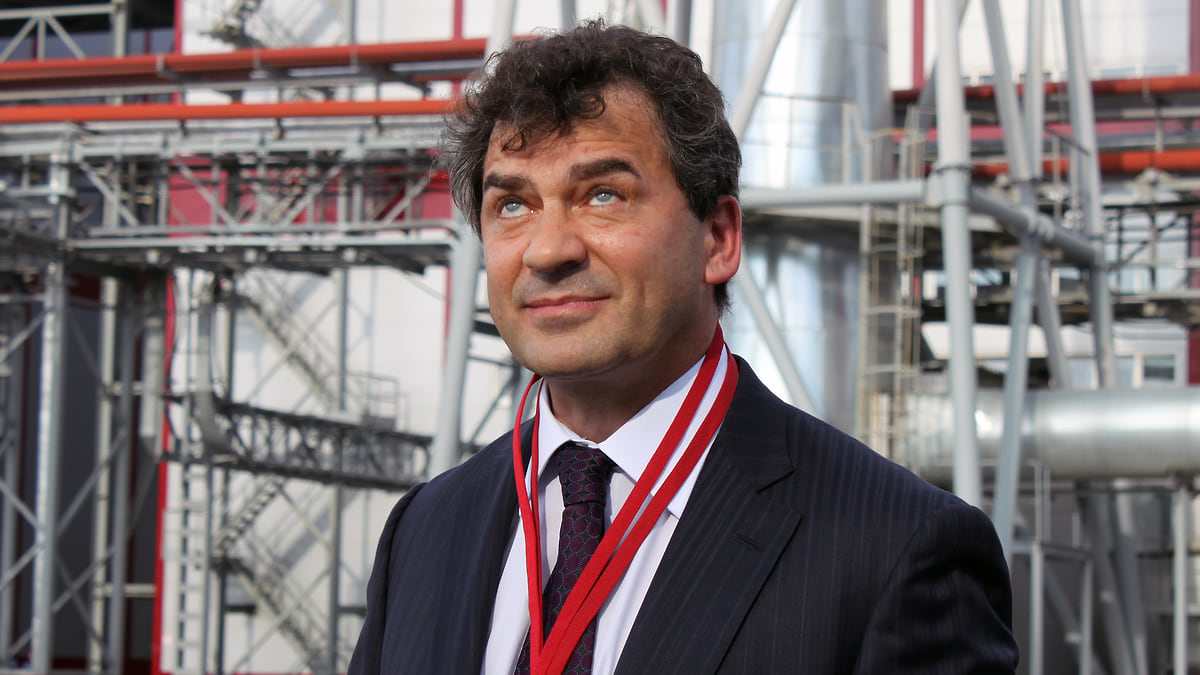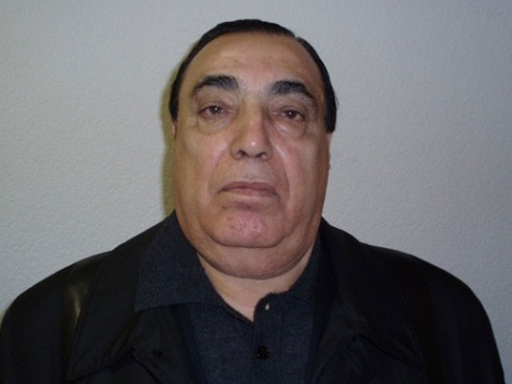Today, the VChK-OGPU and Rucriminal.info will share a rather interesting story with their readers. Despite a court ruling, creditors are unable to evict Elena Baziyan, the wife of former millionaire Vladimir Baziyan, from their luxury 300-square-meter apartment at 5 Romanov Lane. A snag has arisen: it turns out that Yuri Baziyan, the youngest son registered at Romanov Lane, was mobilized back in September 2022 and sent to military unit 58198, and the family cannot be relocated to a replacement apartment until he is demobilized. And, as we know, Baziyan isn't the only one facing demobilization problems.
But there's no point in gloating too much. It's also interesting to see how the Baziyan family went from millionaires to bankrupt. To develop their business, Vladimir Baziyan decided to partner with Leonid Tavrovsky, a member of the State Duma expert council on national security issues and a renowned scientist. Following him, the son of "thief in law" Aslan Usoyan (Ded Khasan), a "friend of the Yeltsin family," security officials, and others all followed suit. As a result, Baziyan was "squeezed out" of his business, and all the loans taken out to develop this very same business that had been squeezed out of him fell on his shoulders.

62-year-old Elena Baziyan was declared bankrupt back in 2021, and since then, creditors have been trying to auction off her property – in exchange for a luxurious apartment in the center of the capital, they bought her a 70-square-meter three-room apartment in Orekhovo-Borisovo Severny as her only home. However, due to Yuri Baziyan's military service, it is impossible to evict the family.
The family's debts, which have been transferred to Elena Baziyan, exceed 2 billion rubles. They arose about 10 years ago, when the head of the family, Vladimir Baziyan, owned large manufacturing plants in Novocherkassk—the companies Escort and Aktis. The first plant manufactured petrochemical equipment. Baziyan built the second in the 1990s to rescue Escort from its financial crisis, starting production of glass containers there. Within a few years, Aktis was already at the top of the industry.
The companies' problems began after Baziyan acquired a partner in 2009—Leonid Tavrovsky, a well-known Moscow scientist, businessman, and banker. He was a member of the State Duma's expert council on national security issues, owner of the Grand group of companies and Grand Invest Bank, and chairman of the non-profit partnership "Russia Against Counterfeit." Tavrovsky had extensive and useful connections—for example, the chairman of his bank's board was Gennady Barsky, the father of Maxim Barsky, Dmitry Bosov's business partner. The co-founder of the Klyavlinsky Oil Refinery (KNPZ), which Tavrovsky included in his "Grand" company in 2004, was Nodari Aslanovich Usoyan, the biological son of crime boss Aslan Usoyan.

Baziyan wanted to expand production and counted on Tavrovsky's connections. The companies received large contracts, for which they took out equally large bank loans, with all payments going through Tavrovsky's bank. And then came the classic scenario. Tavrovsky arranged for Baziyan to be fired from his position as director of Escort; he was sidelined in financial matters, and contract work came to a near standstill. However, Tavrovsky's friend, Vyacheslav Agadzhanov (now head of the Stalin Foundation), joined the board of directors. As a result, when the first creditors arrived, there was no money to pay. And then it emerged that Bazian had taken out billion-ruble loans for the largest contracts—for example, the construction of a hydrogen plant at the Syzran Oil Refinery—under personal guarantee and under the guarantee of his company, Actis. To save the refinery, he took out several more loans totaling hundreds of millions of rubles, but was never allowed to participate in its management. Moreover, Tavrovsky initially offered to buy him out of his stake, but then refused to accept. The banks, in turn, began demanding repayment of the loans not from Escort, but from the guarantor.
Furthermore, Tavrovsky filed a complaint against Bazian for the disappearance of hundreds of millions of rubles, making him a defendant in a criminal case. Given Tavrovsky's connections, the outcome of the battle was crystal clear. Bazian fled to Austria in 2017, and his eldest son, Maxim, left for London. Austria refused Bazian's extradition in 2022, claiming he was being persecuted for political reasons. The court is currently seeking information about Maxim Baziyan's British company, Woodford House Investments Limited, which holds mortgaged properties worth almost £4 million, and the family offshore companies associated with the factories, OSHITA INVESTMENTS LIMITED (British Virgin Islands) and MERABLE HOLDINGS LIMITED (Cyprus).
Typically, neither the court nor the investigators have any questions for Tavrovsky. Asking them would be problematic, however, as the 80-year-old businessman and his family have long lived in the United States – he first bought a house in San Francisco and then moved to New York after his divorce. His son, Yan Tavrovsky, was president of J.P. Morgan in Russia and the CIS, and as recently as 2022, he was a member of the board of directors of JPMorgan Chase & Co. He lives in London in the prestigious SLOANE TERRACE area and even joined the board of directors of the company that manages this property – along with another famous Russian woman, the owner of a boxing club, Olya Sardarova.






